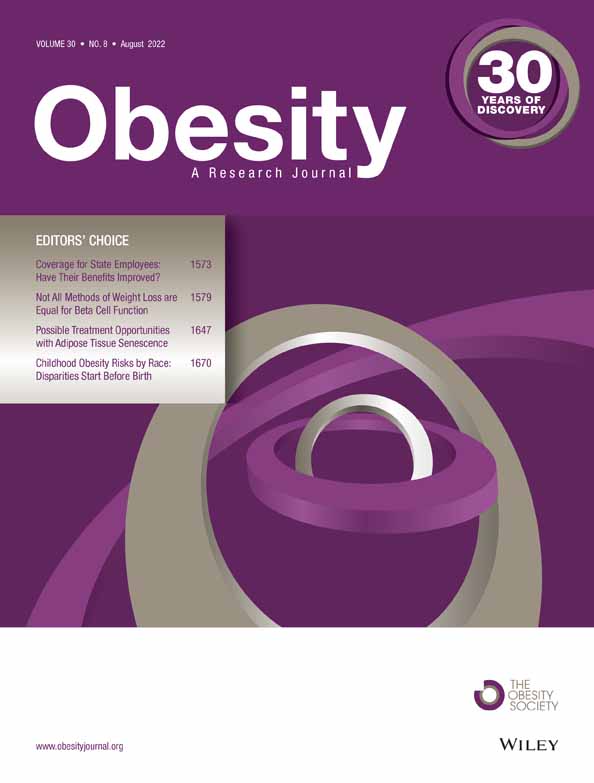Pragmatic implementation of a fully automated online obesity treatment in primary care
See Commentary, pg. 1535.
Funding information: National Institute of Diabetes and Digestive and Kidney Diseases, Grant/Award Number: R18 DK114715; National Institute on Minority Health and Health Disparities, Grant/Award Number: K23 MD015092; National Heart, Lung, and Blood Institute, Grant/Award Numbers: K23 HL136845, T32 HL076134
Abstract
Objective
Behavioral obesity treatment implemented in primary care is efficacious but typically involves face-to-face or phone contact. This study evaluated enrollment, engagement, and 12-week weight loss in a fully automated online behavioral weight-loss intervention implemented pragmatically in a primary care network.
Methods
As part of routine primary care, providers and nurse care managers offered a no-cost online obesity treatment program to 1,721 patients. Of these, 721 consented and were eligible (aged 18-75 years with BMI ≥ 25 kg/m2 and internet access), and 464 started the program. The program included 12 weekly online lessons, a self-monitoring platform, and automated feedback.
Results
More than one-quarter of patients who were offered the program (26%) initiated treatment. In intent-to-treat analyses using all data available, mean 12-week weight change was −5.10% (SE = 0.21). Patients who submitted their weights on all 12 weeks (37% of 464) lost an estimated 7.2% body weight versus 3.4% in those submitting less frequently.
Conclusions
This fully automated online program, implemented into the routine workflow of a primary care setting without any human counseling or researcher involvement, produced clinically meaningful short-term weight loss. Greater program engagement was associated with greater weight loss; efforts are needed to understand barriers to engagement.
CONFLICT OF INTEREST
Dr. Thomas reports personal fees from Lumme Health Inc., and Dr. Wing reports personal fees from Noom Inc., outside the submitted work. The other authors declared no conflict of interest.
Open Research
DATA AVAILABILITY STATEMENT
Deidentified study data representing reported findings may be available on reasonable request from the corresponding author, JGT.





